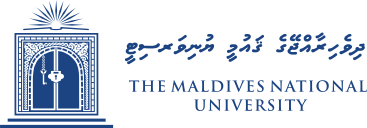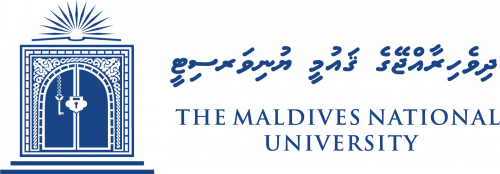By Asiya Ibrahim
- Planning for online teaching- what strategies were used?
School of Nursing has been offering blended learning for Bachelor of Nursing and Master of Nursing developed with the assistance of CETE for nurses who are already registered and working for the past few years. As most of SN lecturers are coordinating or teaching subjects in these courses, most are familiar in offering online Moodle activities. However, as the lecture hours in these courses were taken as face to face contact hours, taking lectures through Google meet was very new process. Additionally, extending both the Google meet classes and Moodle tutorial for all the theory subjects in other SN courses was an enormous task for everyone.
Initially, Google meetings were held with the guidance provided through CETE to plan the subjects to offer online. SN Curriculum Committee meetings were held through Google meet to decide on how to deliver the subject contents through online real time lectures as well as tutorials as Moodle activities, as well as to bring necessary changes to complete the subjects’ assessment components. Head of Departments (HOD)s closely guided the lecturers on the whole process of delivering the teaching and learning activities.
One of the most challenging aspect of the Google meet classes was internet connectivity issues. The other challenge was in taking attendance of students, especially for the subjects where more than 100 or 200 students were enrolled.
- Planning for online assessment what strategies were used?
The revised Assessment Policy endorsed from Academic Senate for COVID 19 situation was used as a guide in planning for online assessment. It was decided not to bring any changes to the assessment components but to convert it to Moodle based assessments. To encourage students to use Moodle for tutorials, for relevant subjects, an additional assessment component was included to give marks for identified online tutorials submission.
Final exams were planned to be conducted through Moodle with question papers uploaded as a PDF document and answer papers to be submitted into TurnItIn links. Final exam timetable was prepared and the dates and instructions for the exam was uploaded in the respective Moodle pages. Special instructions on the importance of not copying or cheating and instructions to avoid plagiarism and the consequences for these were highly emphasized. Majority of the exams went well without any issues, except for a few subjects where high similarity percentages were identified for the submitted TurnItIn answers.
To finalise subject grades, ARC marksheets were shared in folders to ARC members through the Google drive for members to finalise and endorse. This was seen to save a lot of time as members got to endorse or comment it at their convenience instead of spending a lot of time in a meeting.
- Professional Development Initiatives for Online Teaching
All SN lecturers enrolled in the short training programs that were conducted by CETE to assist them in conducting online classes. Those sessions were found to be very helpful especially ones on how to set up the Moodle online activities to enhance the Google meet real time classes as well as setting Quizzes in Moodle and other exam settings. A lot of collaboration was seen among SN staff as well as assistance was extended from lecturers who were more familiar and technology savvy to those who were less familiar in tasks such as taking Google Meet attendance or setting up final exam in Moodle.
- What were/are the challenges faced
One of the main challenges was starting the online classes while lectures were at home during the lockdown. All lecturers were quite new in conducting real time lectures in Google meet. There were lecturers who needed assistance in setting up Moodle activities. Students, especially those in first semester, had difficulty in doing Moodle activities as they were very new and unfamiliar to Moodle. Issues with internet connectivity and the high cost of internet was identified as a barrier for online learning.
SN decided to conduct online exams even in Term 1 2020 when other faculties or academic senate did not decide to conduct online exam. The process was very challenging and anxiety provoking as it was the first-time final exams were held online. To overcome this, a lot of guidance and support was provided to both lecturers and students. During online exam paper marking, issues of copying and plagiarism, which was shown through high percentages of similarities in the papers, were identified. This was a very challenging issue that had to be addressed and was attended through ACR meetings and decisions.
- Future goals based on lessons learnt
The strategic action plan for 2021 of SN focuses on strengthening the online learning through revision of subjects especially offered on blended mode. SN plans to develop recorded videos of lectures that can be uploaded in Moodle. Development of videos for all nursing art lab procedures are planned, so that these can be made available for students. Therefore, training on developing these videos are needed. Additionally, it is planned to continue Google meet lectures to be given by experienced lecturers so that students in other campuses can benefit through these sessions. Regular academic staff meetings through Google meet has been found to be very useful as all the lecturers including those based in the regional campuses and ORCs were able to join which otherwise was not done before. There are plans to conduct regular in-service and professional development sessions for all lecturers to become competent in online based learning and using Moodle as a learning platform.
Though the COVID 19 pandemic is stressful and challenging, I believe there were important lessons that everyone, including myself, have learnt. Online learning and offering blended mode approach isare an excellent way to reach large number of students including those in remote areas. I agree that first year students joining Advanced Certificate, Diploma or directly to Bachelor of Nursing needs onsite traditional face to face learning where basic nursing care can be taught best. However, nurses who are already registered and wanting to upgrade their qualification, blended approach through online platforms is very advantageous. MNU as a whole need to look into strengthening online learning through contemporary methods so that more students can be attracted to study in our university.



